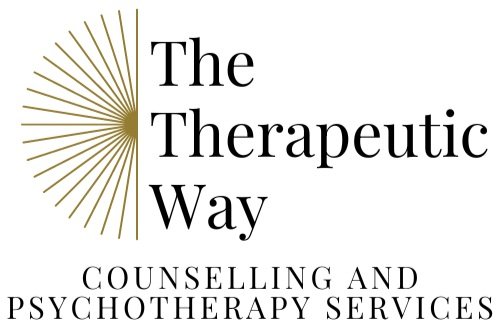
Therapy for Attachment Disorders
Move from insecure to secure attachment
Support for Attachment and Childhood Wounds
Support for individuals, couples, and families. We value relationships. Insecure attachment can destroy any loving relationship.
Attachment and emotional wounds can significantly impact an individual's sense of self, relationships, and overall well-being. Therapy provides a valuable opportunity for healing and growth, enabling you to develop secure and healthy attachments. Learn to start trusting yourself and others, increase your self-esteem, develop healthy boundaries, and more!
Do you have a hard time forming and maintaining healthy relationships?
Attachment styles are patterns of behaviour and emotional responses that develop in early childhood and continue to influence our relationships throughout adulthood. They are developed through our connection with our caregivers and influences how we relate to our partners, families, and friends.
What are the attachment styles?
★ Secure
As a child: We had consistent and nurturing caregivers during infancy.
As an adult: What we all strive for. More confident in their relationships, have better communication skills, and are better equipped to handle conflicts.
★ Anxious
As a child: Our caregivers were inconsistent, not always available or responsive to a child's needs.
As an adult: We tend to have fears of abandonment and rejection. We have a need for constant reassurance. We become excessively pre-occupied and worry about your relationships.
★ Avoidant
As a child: Our caregivers were emotionally distant or unresponsive during infancy.
As an adult: We tend to push people away. We value independence even in relationship and we are uncomfortable with closeness.
★ Disorganized
As a child: Often the result of traumatic or inconsistent caregiving experiences.
As an adult: Mix between anxious and avoidant. We struggle with stability and security in a relationship. We tend to alternate between a desire for intimacy and a fear of it.
THE THERAPEUTIC WAY
How does therapy help with attachment issues?
Good news: Attachment styles are not static; they can evolve and change over time. With therapy,
Learn about your own and your partner’s attachment style
Learn how to create a loving relationship based on your attachment style
Improve your relationship, learn to voice your need, and feel secure
Inner child healing and recovery from trauma
Manage emotional distress, and feelings of jealousy, insecurity, and anxiety
Improving your self-esteem and self-worth
Break unhealthy relationship patterns, i.e. codependency and toxic relationship
Schedule a free 20 mins consultation call today to speak with a therapist!
Attachment Therapy at The Therapeutic Way
Anumeet Sandhu
*Individual Therapist
Syeda Zaidi
*Individual, Couples, and Family Therapist
We offer support for insecure attachment to move into secure attachment. We offer a safe and supportive space for you to explore your struggles and navigate your relationships. No more chasing a relationship or pushing your partner away. Learn the triggers and self-sabotaging behaviours you are engaging in and work towards changing it. We use research-based methods such as Cognitive Behaviour Therapy, Dialectical Behaviour Therapy, Narrative Therapy, Somatic Therapy, Mindfulness to support you.
Reach out today to schedule a consultation call with a licensed therapist.
Unlock a Healthier You!
We offer a 20 mins free consultation so we can discuss how therapy can help you.
FAQs
Please reach us at info@thetherapeuticway.ca if you cannot find an answer to your question.
-
Fees
Individual therapy: 50 mins, 75 mins, 90 mins: $150- $180 +HST
Couples therapy: 50 mins, 75 mins, 90 mins: $180- $220 +HST
Family therapy: 50 mins, 75 mins, 90 mins: $180- $220 +HST
Cancellation fee is charged as follows:
Less than 24 hours before the appointment: 50% of session rate
No-show appointment: 100% of session rate
In case of illness or emergency, one time exemption and thereafter we require 24 hours notice
Arriving beyond 20 minutes late will require a re-scheduling of your appointment.
-
Yes, we do.
It is recommended that you reach out to your insurance provider before our session to confirm whether your services are covered by a registered psychotherapist and eligible for reimbursement.
After our session, you will be provided with a receipt that includes all the information required to submit to your insurer for reimbursement. If you have not been reimbursed, remember to keep your receipts to claim for tax deductions as medical expenses on your personal income tax filing.
-
The type of therapy that is best for you, depends on you as a person and the reason you are seeking therapy. There are different types of therapy, such as somatic-based therapy, cognitive behavioural therapy, trauma-informed therapies, holistic therapy, existential therapy, and more. The type of therapy that is right for you will depend what you are looking for. While you may have an input in this, majority of the time the therapist will know what is best suited for you and will let you know.
At The Therapeutic Way, we work with clients using an integrative approach to therapy, meaning using different modalities to suit your needs. We use a trauma-informed, holistic, and relational approach to working with you. Click here to learn more.
-
The difference between psychotherapist, psychologist, and psychiatrist, depends on education and scope of practice.
Psychotherapist, psychologist, and psychiatrist can provide therapy called talk therapy.
A psychotherapist can provide therapy under the College of Registered Psychotherapist of Ontario, a psychologist can provide therapy under the College of Psychologists of Ontario, and a psychiatrist can provide therapy under College of Physicians and Surgeons of Ontario.
Difference:
Psychotherapist Education: Master’s Degree or higher
Psychologist Education: PhD or PsyD.
Psychiatrist: MD
————
Psychotherapist: Can’t diagnose
Psychologist: Can do assessment and diagnose
Psychiatrist: Can do assessment, diagnose, and prescribe medication
————
Psychotherapist Training: Counselling and focus on therapy techniques
Psychologist: Focus on clinical research and assessment
Psychiatrist: Use medical treatment such as prescribing medications for mental health conditions
Before seeking help, it’s important to know what you need and are seeking. A consultation call can help you decide.
At The Therapeutic Way, we are registered psychotherapist with the College of Registered Psychotherapist of Ontario.
-
The term psychotherapy and counselling are often used interchangeably with some slight differences. Psychotherapy refers to the treatment based for psychological disorders and mental health issues, such as depression, anxiety, PTSD, ect. Counselling refers to wellness support and providing insights and clarity which leads to growth or personal betterment.
At The Therapeutic Way, we provide both psychotherapy and counselling.
-
Online therapy is as effective as in person therapy. What is most important with any format of therapy is the strong therapeutic relationship between you and your therapist. Online therapy is a good option when coming in-person is not feasible, when you have dependents at home, and it is also more convenient.
At The Therapeutic Way, we offer online therapy and therapy by phone from the convenience of your home. Click here to learn more about our online therapy.


